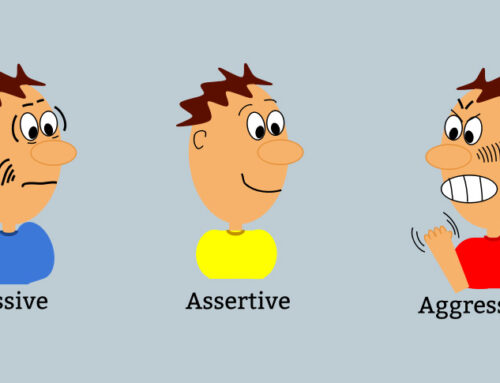How to Say No: 5 Key Strategies
January 15, 2018
Categories: Assertiveness
Many of us struggle with saying no. For example, maybe your friend asked you to do something. You really don’t want to do it, but you feel bad saying no. Or maybe you were asked to volunteer for something at church or work. It’s not really in your area of purpose or expertise, but it’s a good thing, and the need is there. So you don’t say no, which leaves you resentful and angry. How can we get better at saying no in our life?
5 Keys to Saying NO!
- Know what you want. Some people struggle to say no because they aren’t really sure what they want. If someone asks you to do something, their position is clear. They want you to say yes. If you aren’t clear on your position, it can be difficult to say no. It’s easy to get swayed by the position of the other person. Because of this, it’s important to figure out what you truly want for yourself. Once you do that, you can be clear about whether you want to say yes or no.
- Give yourself time. Some people struggle to say no because they feel pressure in the moment to give in. Or, related to the first point, they need time to figure out what they want, but the other person wants an answer RIGHT NOW. One important shift is to give yourself time to make a decision or a commitment. If someone asks you to make a commitment in the moment, tell them you have a rule that you don’t make commitments in the moment—you need time to think it over. If they can’t respect your need for time, the answer is always no.
- Have an advisory team. I remember one time I asked a colleague if he wanted to be a part of a project I was leading. He said he was interested in the project, but he needed to check with his advisory team to make sure the project was within the scope of his mission and purpose. He got back to me a week later and said that although the project was interesting, the advisory team determined the project was not central enough to his mission and purpose, so he declined to be involved. I was disappointed he said no, but I respected his process. What an awesome idea to have checks and balances on your commitments. I have tried to implement this process in my own life. Before my wife or I commit to anything, we have a rule to check in with one another before making the commitment. We have a discussion about whether the commitment is in our best interests and closely related to our mission and purpose. Get an advisory team to help you say no.
- Clarify your mission and purpose. Back to the story of my colleague—The primary reason he declined the opportunity was that it was too far afield from his mission and purpose. He knew what he wanted his life to be about, and he was focused on that. Because he was committed to his purpose, he had to say no to opportunities that were too far away from that purpose, even if they were good things. We can have the same kind of focus in our own life. If we are crystal clear about our mission and purpose, we are better able to say no to commitments that aren’t in line with our core focus.
- Deal with the pain of saying no. Some people struggle to say no because they have trouble dealing with the pain of saying no and disappointing other people. Especially if we were raised with taking care of others as an important value, it can hurt to see someone disappointed by us. But disappointment is part of life. If you run your life based on someone else’s agenda, you will never discover what is true inside you. You need to be able to deal with the pain of saying no and disappointing others. The only way to get better at this is to practice. Say no, and then see what comes up for you. Journal about your reactions, or talk them over with a family member, close friend, or counselor. Get support in your quest to say no. Feel the pain of saying no, and then do it anyways.
Discussion: How are you doing at saying no? Are there things you are doing in your life right now that you don’t want to do? What do you think of the 5 keys to saying no? What is one strategy you could implement in your life today to help you get better at saying no?

Related Thoughts
No Comments
Leave A Comment

Subscribe To My Newsletter
Join my mailing list to receive the latest blog posts.
Receive my e-book “The Mental Health Toolkit” for free when you subscribe.





[…] Boundaries and limits. Often the first step to implementing self-care in your life is to think about where you need to do less. Most of our lives are so packed with activities that are extraneous to our core mission and purpose. What could you cut out of your life to make more time for self-care? Are there any activities you are doing that are timewasters? For example, could you limit the time you spend watching TV or browsing social media? Could you limit email to once per day? Is there anything in your life that you should say “no” to? […]
[…] Eventually I said no. I think it was the right decision. But I was also aware of a deeper issue that was going on inside me. I didn’t have a clear process for how to make the decision of whether to say yes or no to the new project. There had to be a more effective way to go through life than what I was doing—which was basically just winging it. […]
[…] and just react to my impulses. For example, someone asks me to do something, I feel guilty, and say yes immediately. My wife says something that bothers me and I fire back a sarcastic remark. I get scared about […]